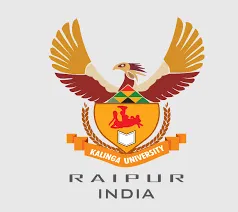Environmental Sciences is a field that studies natural processes that occur, their causes, and consequences. It involves fieldwork as well as lab research and testing. This means that the theoretical concepts and the practical be able to blend perfectly for you to make a decision and discover solutions.
Because of its purpose for research, Environmental Sciences is an extremely inter-disciplinary discipline. You can expect to learn Biology, Ecology, Geosciences, Chemistry, Physics, Social Sciences, and others. You'll be able to learn about different climates as well as explore diverse habitats across the globe.
You'll be able to use your research findings to develop policies that can help protect the environment. Policies can aid in tackling the ongoing environmental issues, like desertification, global warming, melting of the glaciers in the Arctic cap, as well as the pollution of the land, air, and water. In addition, you can make use of your expertise to determine the effects of human activity on nature as well as the environmental impact of your projects.
A Bachelor's or Masters' degree in Environmental Sciences could make you a career success as an environmental consultant as well as an environmental education officer marine biologist, environmental engineer sustainability consultant as well as water quality scientist. numerous other positions.
Eligibility:
Candidates who want to take admission in Ph.D. must have a post-graduate degree in environmental sciences with at least 55% marks from a recognized university and must have passed the national level entrance examination or university level entrance examination. National level entrance exams like UGC NET / UGC CSIR NET / GATE / SLET or University entrance exam consisting of written tests and personal interviews.
Benefits of this course
In many Ph.D. programs, you can obtain your master's degree when you pursue Ph.D. requirements. Other applicants may require you to have already earned an advanced degree when you apply. You'll be required to provide transcripts, test results, and sometimes letters of recommendation along with a resume. your personal statement or writing example.The core courses will be in the fields of environmental issues, research as well as various theories and techniques. Once you have established this foundation, you'll be able to choose an area of study and collaborate alongside an advisor, or a committee to develop your plan of research. You'll be required to compose and defend your dissertation.
Other requirements are passing a thorough test or undergoing annual performance evaluations as well as gaining practical experience and presenting your findings at conferences or submitting it to journals of scholarly research to be published.
To help you save your precious time, energy, and money, we've compiled an index of the seven top Ph.D. in environmental sciences. These programs will equip you with the skills and knowledge required to tackle the most pressing environmental problems. To make this list we examined the costs of tuition, the school's reputation, the ROI, as well as accreditation.
Job Prospects and Career Options
Once a degree has been earned in the field, candidates will have a wide range of jobs to pick from. It is easy to find jobs with private and government organizations as well as other industries. They may also opt to instruct as a professor or lecturer in universities or colleges.
They are employed by different organizations like Water Authority, Pollution Control Board, and Urban Planning in this sector.
Many private companies are present, such as Refineries, Distilleries, Food processing industries, as well as Fertilizer plants, which are providing numerous job opportunities to graduates of this field.
They could be eligible to apply for positions in fertilizer factories and work in companies that process food as managers.
Graduates may also be employed in this area as Environmental Journalists in any magazine, newspaper, or TV station.
Candidates may also join groups of their preferences. A lot of organizations are expanding their work on issues pertaining to environmental issues.
It offers a variety of professional opportunities for those who are interested, including teaching or research positions with roles like Ecologist Scientists, Consultants and Scientists Technician, Lecturer Research Assistant, etc. After completing the course.
Future Scope
It provides a variety of employment possibilities for scientists working in the field of environmental science, as well as jobs for ecologists, environmental engineers environmental modelers, as well as environmental journalists.
Environmental scientists are employed by fertilizer plants mining, industries of textiles and dyeing as well as food processing units, and so on.
There are many opportunities to join the research field in non-profit or government organizations for environmental scientists who are interested in becoming a part of the research team. Additionally, they have the chance to be employed in management, consulting as well as conducting scientific research.
When you have completed an advanced degree such as MSc, M. Tech, or Ph.D. in Environmental Science You can then be an independent environmental consultant or for any consulting firm. For example, ecological consultancies like RAMKY, ENZEN, etc.
Most government research and universities include at least an Environmental Department. They may be hired for the department as JRF as well as Project Assistants in different projects.
Course Duration:
The Ph.D. environmental sciences course is a minimum of 3 years and a maximum of 5 duration. This depends on the university offering the course.
Course Fees:
The average fee for Ph.D. in environmental sciences degree is between INR 50000 and INR 500000.
 5 Years
5 Years
 PhD
PhD
 Research
Research

































 back
back